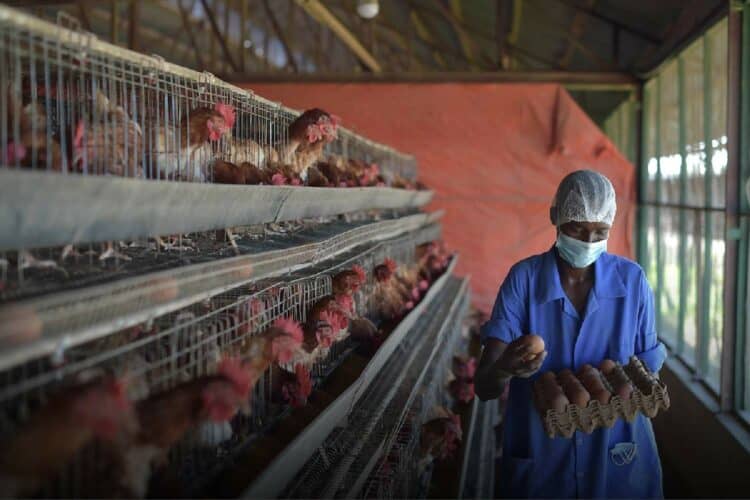South African poultry producers have issued a warning of potential shortages of eggs and chicken in the coming months, as the country grapples with its most severe outbreak of bird flu to date.
Egg and chicken shortage on the horizon as poultry producer battle severe ‘bird flu’ outbreak
This outbreak is poised to impact up to 20% of the nation’s broiler supply, with the poultry sector typically producing around 22 million broilers for consumers each week.
Astral Foods, one of the largest poultry producers in South Africa, revealed the outbreak is driven by a new strain of bird flu known as H7N6, which has been spreading alarmingly across Gauteng and Mpumalanga.
It’s deemed the most severe outbreak South Africa has ever faced, surpassing the impact of the 2017 H5N8 bird flu outbreak.
The total cost associated with the current outbreak has already reached R220 million, Astral Foods CEO Chris Schutte told News24.
Regarding egg supply in South Africa, Schutte expressed concerns, stating that the situation could result in a massive and long-lasting shortage of table eggs in the market.
Poultry meat shortages are also anticipated over the next four to six months, with initial effects potentially appearing as early as December 2023.
Understanding Bird Flu (Avian Influenza)
Bird flu, or avian influenza, is a highly contagious viral infection that primarily affects birds, particularly poultry like chickens, ducks, and turkeys.
While bird flu strains are typically specific to birds, some can infect humans and other animals.
The avian influenza virus is categorized into various subtypes based on surface proteins, with H5N1 and H7N9 being two of the most concerning strains.
Impact on Humans:
- Rare Human Infections: Human infections with bird flu are relatively rare but can occur when people come into close contact with infected birds or their environments. This contact can happen during the handling, slaughtering, or preparation of infected poultry.
- Severity: When humans are infected with bird flu, the severity of the illness can vary widely. Some individuals may experience mild symptoms similar to seasonal flu, while others can develop severe respiratory issues and potentially life-threatening complications.
- Potential for Pandemics: The primary concern with bird flu is its potential to mutate into a form that spreads easily among humans, potentially leading to a global pandemic. Fortunately, most bird flu strains do not spread efficiently from person to person.
- H5N1 and H7N9: The H5N1 and H7N9 strains are among the most worrisome for human health. H5N1 has a high mortality rate in humans, while H7N9 has caused severe respiratory illnesses. These strains have led to sporadic human cases, with some fatalities reported.
- Preventive Measures: To reduce the risk of human infection, authorities implement strict measures in areas affected by bird flu outbreaks. These measures include culling infected birds, imposing restrictions on the movement of poultry, and conducting surveillance.
- Vaccine Development: Researchers work on developing vaccines for potential pandemic bird flu strains to mitigate the impact on human health. However, the constantly evolving nature of the virus makes this challenging.
In summary, bird flu is primarily a disease of birds, but certain strains have the potential to infect humans.
The severity of human infection can vary, and there’s ongoing research and surveillance to monitor and respond to outbreaks, with the ultimate goal of preventing the emergence of highly contagious and deadly bird flu strains in humans.






